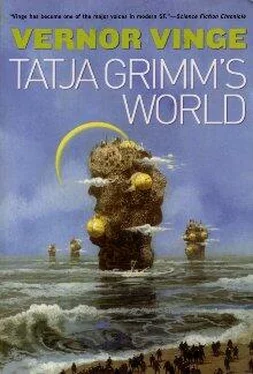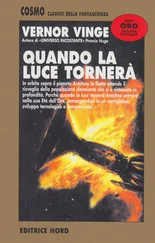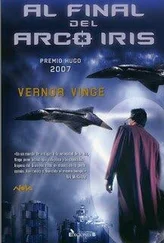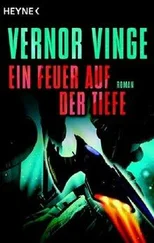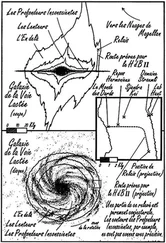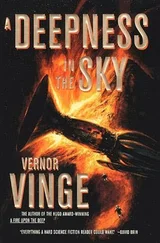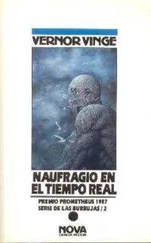The battle sounds were sporadic now. Guns still fired and men still fought, but it was the tempo of grease sputtering in a pan rather than fire running before a strong wind.
“See that?” Jolle pointed to one of the signal lights. “We’ve destroyed the enemy’s main force. The engagement lasted only thirty minutes, and we’ve achieved complete victory. We’ll capture most of the survivors. Things moved so fast, we may have actually caught Pröfe, too.” He turned to the signalman, who had just returned. “Captain, go back to the map room and ask Stark to assemble the staff.”
Svir looked at Jolle. The shelling had set fire to a nearby tree, and the alien’s face was visible in the light. He seemed to be smiling. What if the engagement had destroyed Profirio? Then the whole matter was decided, no matter who was the monster.
“I’ll be leaving you in a few minutes,” said Jolle. “I want to inspect the prisoners. Marget handled that during the battle, but she would have big trouble if Pröfe were captured.
“Before I go, let me tell you what I want from you. Later this morning, the command group is going to O’rmouth. The Doomsday people think this is all some sort of victory celebration, and we won’t say otherwise till we’re in conference with the Archobservers. I don’t think I’ve convinced you that Pröfe is the monster … but I need you. If you have any questions or tests to put to me, think them over tonight and maybe I can give you some proof before we go up there. When we’re actually in conference, I want—”
“Sir?” It was Imar Stark at the curtain. Jolle walked across the room to talk to the general.
Svir stifled a curse, and Cor squeezed his hand. Patience. He looked outside, at the burning tree. Its twisted limbs gave it a horrible, manlike appearance. It was a terrible symbol of all this night’s suffering. Cor must have thought the same. Ancho stirred nervously on her shoulder, and she pulled at Svir’s hand, urging him away from the window slit.
Then the tree spoke. It was a human voice: ponderous, deep, and menacing. The words weren’t Spräk or Sfierro. To his Island mind they sounded something like, “Ter äshe gaul, Jolle.” And he never forgot those words, for simultaneously two other things happened which bent his life out of time.
Jolle’s hand jerked Svir back from the slit window. “Prö—”
The world ripped open and the light of hell itself shone through. With that bloody light came a painfully loud explosion just inches from his face. Then the rent was mended. He was lying on the ground, and everything was dark except for the painful afterimages floating in his eyes. He felt Cor beside him. Jolle was pulling him to a sitting position. He allowed himself to be raised, then reached for his wife. “C’mon Cor, get up.” No answer. Then he was back on the ground, feeling for wounds… trying to wake her… burning fur … Ancho…
That stroke of artificial lightning had come through the slit near his left side—where Cor had been standing. And the explosion had been… He still couldn’t see anything, but he could hear someone screaming her name over and over. Strong hands pulled him up and someone was slapping his face. The tiny room was filled with people. Or rather he had been moved into the map room. The streak afterimage of Pröfe’s weapon still hung before his eyes, but now there was another, fainter light. He was lying on his back, and the room’s lamp was shining above him like a broad blue cloud. It seemed so much fainter than before. Everything was dark and blurred.
He rolled over in the dirt. People stood or knelt by something on the ground. Others ran back and forth, but they were irrelevant. The kneeling one was a medic, he could see now. And beside him on the ground—his sight was very blurred, and the impression was vague, but—The explosion at the end of the red thunderbolt had been—Cor’s face.
The tired medic muttered, “It was quick at least.” The platitude sent Svir into a flat dive hat ended at the medic’s throat. He was on top of him, then under, and the noise around him seemed bright with surprise and anger. Then everything became dark again.
The colonization of the West Coast had begun a thousand years before. Llerenito farm settlements were scattered from the twentieth to the fortieth parallel—the seeds whence grew Sfierro and Picchiu. About the same time, people of the Chainpearls founded a major colony at Bayfast. Much later, Chainpearl fishermen began living on the rocky coast north of the fortieth.
In the beginning, these northerners had the same language, the same heritage as the Bayfastlings. The names they laid on their grim land were meaningful to Bayfast ears: Doomsday, Heaven-gate, Overmouth. But the years passed; hardship and distance brought a parting. After five hundred years, though they still spoke a language understandable to Bayfastlings, their view of the world was utterly alien. These “Doomsdaymen” raised their own religion—which would probably have become Seraph worship if only the Doomsday Range had lain beneath the sky that held Seraph. Instead, the cult’s central belief was that the sky of night is the physical manifestation of the most powerful spirit, and that by studying its countenance, all problems can be solved. In the hills near Kotta-svo-Picchiu there were ruins of the astrological temples of the cult’s early Observers.
The Doomsday religion would have remained a crackpot cult dominating some minor fishing villages, except for two things. The first was the invention of the telescope, a divine endorsement of the cult’s technique. The second was the discovery of copper and iron in the Doomsday Mountains. In one century the fishermen became miners, and very rich ones. Their coastal villages disappeared, except for Kotta-svo-Picchiu, which ballooned into a large port. Scores of mining towns grew in the highlands, and some became cities. The Archobservers found themselves the absolute rulers of one of the wealthiest and most inaccessible countries in the world. Now they had the resources to watch the face of God as befitted that sacred undertaking. As the search for iron carried the ex-fishermen higher into the mountains, the priests noticed that the nights were clearer, the stars brighter.
Thus was born the notion of a cathedral at the top of the world. They would find the highest point in the Doomsday Mountains and construct there the largest telescope possible. The priests guessed the job would take a century and empty their treasure houses; if they had known the truth, even they might have quailed.
It took them fifty years to reach a point ten thousand feet below the peak they judged the highest in the world, and fifty more to build a town there. Overmouth, that “resting spot” was called, since it stood above the largest glacier in the range. In the years that followed, the priests nearly gave up the idea of proceeding higher. Perhaps the heights above were meant for angels, and mere humans should construct their observatory at O’rmouth. Even there, the unacclimated lived less than ten quarters, and most children died in their cradles.
It was only in the last forty years that this terrible thinness of air had been conquered and a means of reaching the top of the world discovered. By then O’rmouth had a population of thirty thousand and rich ore fields had been found in the area, so the city was both the religious and economic center of the region. The drive to the top of the world could be undertaken. It cost thirty more years, and five thousand lives, to set the sixty-inch Eye in its shrine.
“So? We are grateful. We are so grateful that we will not ask Your Most Sacred Majesty to pay for the damage her armies did to the Riverside Road, to Kotta-svo-Picchiu, to the Kotta Eye, and to our farmlands below O’rmouth.” Mikach the Perceptive, First Archobserver, spoke with unconcealed sarcasm, but with all the dignity of his station. He wore a powder-blue robe, indicating he spoke as a temporal power. A necklace of copper and rubies was draped across his chest. The hair on his face and head was braided into two thick tails, one going down his back, the other down his front. Beside him at the iron-topped table sat other Archobservers. Behind them stood unbearded Observers.
Читать дальше
